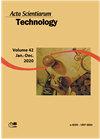Cross-cultural usability evaluation of AI-based adaptive user interface for mobile applications
IF 0.6
4区 综合性期刊
Q3 MULTIDISCIPLINARY SCIENCES
引用次数: 2
Abstract
With the widespread purchase of mobile communication devices and their extensive usage in every aspect of life, allied with global mobility and market penetration – a more culturally universally adaptable interface has become a priority. This pliable interface must conform continuously with the changing abilities of the end user and the person’s culture, irrespective of the prevailing ambient culture. The information required to customise this interface must be derived from the user’s actual digital footprint and not on their feedback. This treatise presents the usability evaluation results of a culturally inclusive and ubiquitous mobile learning (M-Learning) platform (‘Mobile Academy’), with an AI-based adaptive user interface which takes the snapshot of the installed apps on a smartphone as input, predicts the user’s cultural affiliation as well as the language preference and thus offer a culturally customised user interface as the output. The proof of concept (PoC) prototype has been developed based on the CIAUI (Culturally Inclusive Adaptive User Interface) framework, using plasticity of user interface techniques. This approach was taken to test the affordability of developing inclusive applications, considering the ever growing large global culturally diverse user base. Usability evaluation was then conducted and the results carefully analysed. The results indicated that the PoC exhibited enhanced cross-cultural usability and affordability of such techniques. The evaluation results of the PoC also advocates in favour of the user’s cultural profiling based on the mobile usage data, particularly a single snapshot of installed apps. The research provides direction for future research and application development.基于人工智能的移动应用自适应用户界面的跨文化可用性评估
随着移动通信设备的广泛购买及其在生活各个方面的广泛使用,加上全球移动性和市场渗透,一个更具文化普遍适应性的界面已成为当务之急。这种柔韧的界面必须不断适应终端用户的能力变化和个人文化,而不管当前的环境文化如何。定制此接口所需的信息必须来自用户的实际数字足迹,而不是他们的反馈。本文介绍了一个文化包容性和无处不在的移动学习(M-Learning)平台(“移动学院”)的可用性评估结果,该平台具有基于人工智能的自适应用户界面,该界面将智能手机上安装的应用程序的快照作为输入,预测用户的文化归属感以及语言偏好,从而提供文化定制的用户界面作为输出。概念验证(PoC)原型基于CIAUI(文化包容性自适应用户界面)框架,利用用户界面技术的可塑性进行开发。采用这种方法是为了测试开发包容性应用程序的可负担性,考虑到不断增长的庞大的全球文化多样性用户群。然后进行可用性评估,并仔细分析结果。结果表明,PoC的跨文化可用性和可负担性都有所提高。PoC的评估结果也支持基于手机使用数据的用户文化分析,特别是已安装应用的单个快照。该研究为今后的研究和应用开发提供了方向。
本文章由计算机程序翻译,如有差异,请以英文原文为准。
求助全文
约1分钟内获得全文
求助全文
来源期刊

Acta Scientiarum-technology
综合性期刊-综合性期刊
CiteScore
1.40
自引率
12.50%
发文量
60
审稿时长
6-12 weeks
期刊介绍:
The journal publishes original articles in all areas of Technology, including: Engineerings, Physics, Chemistry, Mathematics, Statistics, Geosciences and Computation Sciences.
To establish the public inscription of knowledge and its preservation; To publish results of research comprising ideas and new scientific suggestions; To publicize worldwide information and knowledge produced by the scientific community; To speech the process of scientific communication in Technology.
 求助内容:
求助内容: 应助结果提醒方式:
应助结果提醒方式:


